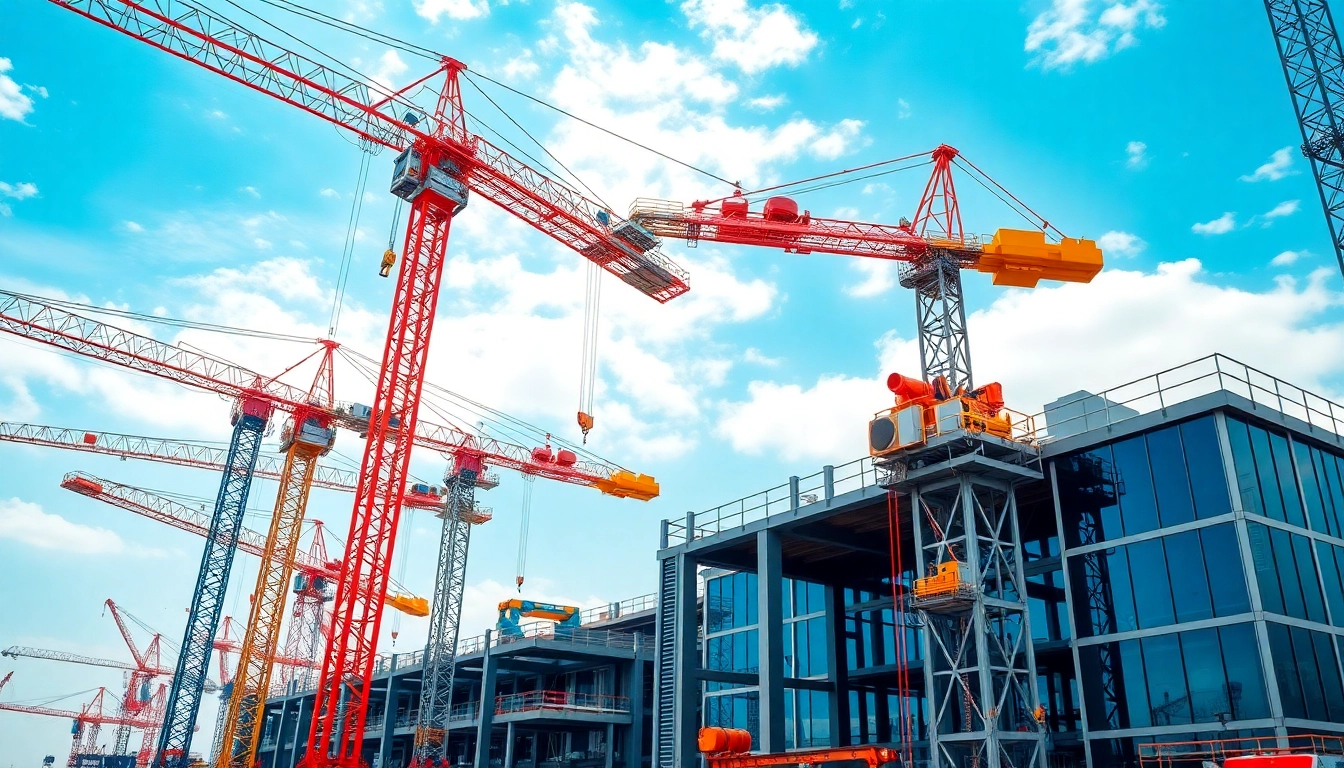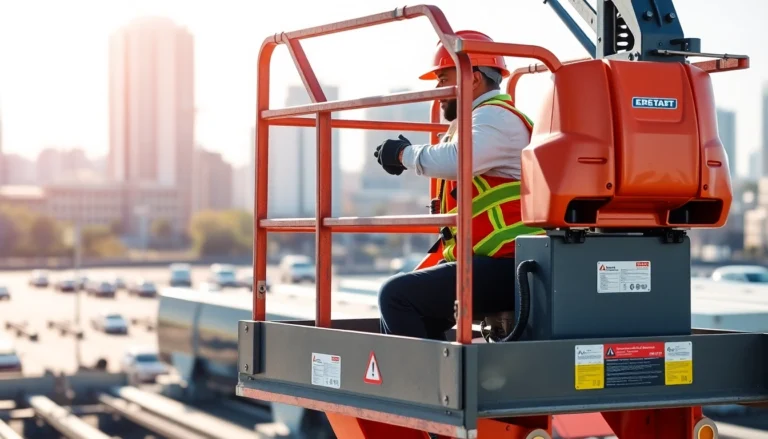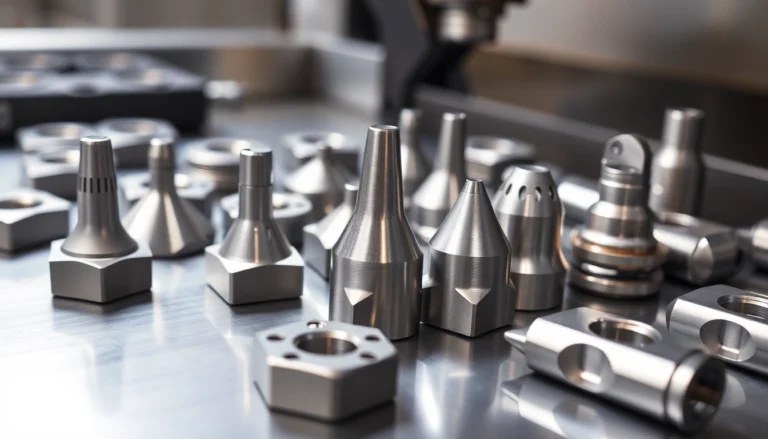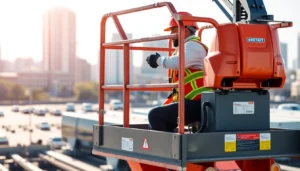Understanding Crane Rental Services in the UK
In the fast-paced construction and infrastructure sectors across the UK, crane rental services play a pivotal role in enabling large-scale projects to proceed efficiently, safely, and cost-effectively. Whether erecting skyscrapers in London, refurbishing industrial complexes in Birmingham, or expanding transportation networks in Manchester, access to reliable crane hire solutions is essential. For project managers, contractors, and industrial operators, understanding the nuances of crane rental — from the types of cranes available to selecting the right provider — can significantly influence project success. As a leading provider of crane rental services, Crane rental offers a comprehensive overview of how to navigate this specialized market to optimize performance, safety, and value.
Types of Cranes Available for Rent
The UK market boasts a diverse array of cranes tailored to meet the varied demands of construction, industrial, and maintenance projects. The key types include mobile cranes, tower cranes, crawler cranes, spider cranes, and specialized lifting equipment. Each type serves distinct functions based on project scope, site constraints, and load requirements.
Mobile Cranes
Among the most versatile options, mobile cranes include truck-mounted, all-terrain, and rough-terrain cranes. Their mobility allows quick repositioning across job sites, making them ideal for multi-phase projects or sites with uneven terrain. Companies like Ainscough Crane Hire and Birmingham Crane Hire maintain extensive fleets of mobile cranes capable of lifting anywhere from 10 to over 1,000 tonnes.
Tower Cranes
Tower cranes are indispensable for high-rise construction, providing height and lift capacity superior to other types. They are typically erected on-site and are capable of lifting heavy loads to great heights with precision. Modern tower cranes often feature self-erecting and luffing mechanisms, enhancing safety and efficiency.
Crawler Cranes
Equipped with tracks instead of wheels, crawler cranes offer stability and high lifting capacity, especially on rough or uneven sites. Their mobility on tracks enables lifting operations that require dragging or repositioning over short distances without disassembly.
Spider and Compact Cranes
Designed for confined spaces or interior lifts, spider cranes and other compact models excel in urban environments or interior renovation projects. Their small footprint coupled with high load capacities makes them a practical choice for niche applications.
Specialized and Custom Cranes
For unique project demands, custom or niche cranes such as floating cranes, telescopic boom cranes, or lorry loaders are available. These serve specialized functions like marine construction, heavy industrial lifts, or remote access tasks.
Key Factors to Consider for Effective Crane Rental
Choosing the right crane rental solution requires careful evaluation of multiple factors to ensure safety, efficiency, and cost-effectiveness. Critical considerations include load capacity, height requirements, site conditions, project duration, and regulatory compliance.
Load and Capacity Requirements
The primary factor is understanding the maximum weight the crane must lift. Failing to match crane capacity with load demands can lead to safety hazards and equipment failure. Always consult detailed load charts and conduct a thorough analysis during project planning.
Site Conditions and Accessibility
Evaluate the terrain, space constraints, and access routes. For example, narrow urban sites benefit from compact cranes, while open rural sites may accommodate larger mobile or crawler cranes. Site analysis should include ground stability, overhead obstructions, and environmental factors.
Project Timeline and Flexibility
Determine the rental duration and potential for extension or early return. Flexible rental agreements can lead to cost savings, especially for projects with uncertain timelines. Consider availability and lead times from rental providers to avoid delays.
Regulatory and Safety Compliance
Ensure the rental provider adheres to UK safety standards set by organizations like the HSE (Health and Safety Executive). Confirm that the equipment complies with safety certifications, and the operator holds valid certifications and training. Insist on proper insurance coverage for all operations.
Cost and Budgeting
Have a clear understanding of pricing models, including hourly, daily, weekly, or project-based rates. Be aware of additional costs such as delivery, setup, dismantling, and operator charges to accurately budget for the entire project.
How to Choose a Reliable Crane Rental Provider
Selecting a dependable provider is fundamental to project success. It encompasses evaluating the company’s experience, fleet quality, safety standards, customer service, and logistical support.
Experience and Reputation
Opt for companies with proven track records and positive client feedback. Check references and case studies, especially for high-stakes or complex lifts. Industry leaders like Ainscough Crane Hire boast decades of experience and extensive national coverage.
Fleet Quality and Maintenance
Verify that the equipment is modern, well-maintained, and regularly inspected. A reputable provider will have a transparent maintenance schedule and comply with UK health and safety regulations.
Safety Management and Certification
Confirm the provider’s adherence to safety standards, including certifications like ISO 9001, UKAS accreditation, and compliance with the HSE’s lifting guidelines. Ensure all operators are certified through recognized bodies such as the National Plant Operators Registration Scheme (NPORS) or CPCS.
Customer Service and Support
Reliable providers offer comprehensive support, including site visits, planning assistance, and emergency response. They should be willing to customize solutions and ensure timely delivery and installation.
Cost Transparency and Contract Flexibility
Choose providers who offer clear, itemized quotes without hidden fees. Consider their contract flexibility and terms on equipment replacement, maintenance, and operational support.
Benefits of Opting for Crane Rental Over Ownership
Cost Savings and Flexibility
Purchasing cranes involves substantial capital investment, storage costs, and ongoing maintenance expenses. Crane rental provides a cost-effective alternative, allowing access to equipment only when needed. For example, renting a multi-ton mobile crane might cost around £1,200 per week, significantly less than the purchase price exceeding several hundred thousand pounds, plus storage and maintenance costs.
This model also offers flexibility—projects can scale equipment needs up or down without long-term commitments, aligning costs closely with project timelines and budgets.
Access to Latest Equipment and Technology
Rental companies regularly upgrade their fleets with the latest models featuring advanced safety features, automation, and efficiency improvements. Clients benefit from these technological advancements without bearing the depreciation or upgrade costs, ensuring optimal productivity and safety standards.
Minimized Maintenance and Storage Hassles
Ownership entails ongoing maintenance, inspections, and storage logistics—costs and efforts that can divert focus from core project tasks. Rental providers handle maintenance, inspections, and transportation, allowing clients to concentrate resources on project execution. This arrangement reduces downtime related to equipment repairs or inspections.
Best Practices for Using Cranes Safely and Efficiently
Planning and Site Assessment
Pre-project planning is critical. Conduct comprehensive site assessments evaluating ground stability, access routes, overhead obstacles, and environmental conditions. Detailed planning ensures optimal crane positioning, reduces risks, and enhances operational efficiency.
Utilize crane simulation software and engage experienced lifting engineers to strategize lift sequences, load paths, and safety zones. Incorporate contingency plans for adverse weather or unexpected obstacles.
Operator Training and Certification
Only certified and experienced operators should handle crane equipment. Ensure operators have current CPCS or NPORS certifications, along with specific training for the type of crane in use. Regular refresher courses and safety updates are essential to maintain high standards.
Invest in ongoing training to adapt to new technologies and safety protocols, aligning with UK standards and best practices.
Regular Inspection and Safety Protocols
Implement routine inspections, including daily pre-operation checks, weekly detailed inspections, and annual comprehensive reviews. Use checklists aligned with BS EN standards and UK health and safety regulations.
Maintain updated maintenance logs and ensure compliance with manufacturer guidelines. Establish safety protocols, including load limit adherence, communication procedures, and emergency response plans.
Cost Insights and Budgeting for Crane Rentals
Understanding Pricing Structures and Pricing Factors
Crane rental costs vary based on several factors:
- Type and size of crane: Larger cranes with higher capacity command higher rates.
- Rental duration: Daily, weekly, or monthly rates provide cost variations.
- Location and accessibility: Urban sites with restricted access may incur additional charges.
- Project complexity: Spezialized lifts or complex rigging increases costs.
- Additional services: operators, transportation, setup, and insurance are often billed separately.
For example, a 25-tonne crane might cost approximately £650 per day in the UK, with weekly rates around £3,000, but these figures depend heavily on project specifics and provider policies.
Estimating Total Rental Costs for Different Projects
Accurate budgeting requires breaking down all potential costs:
- Base equipment rental charges (per hour, day, or week)
- Operator fees (if not included)
- Delivery and pickup costs
- Setup and dismantling expenses
- Insurance coverage premiums
- Additional rigging or safety equipment
Creating detailed estimates and contingency funds helps prevent budget overruns. Always seek quotes from multiple providers for comparison and transparency.
Negotiating Contracts and Value-Added Services
Engage in negotiations to secure better rates, flexible terms, or bundled services. Value-added services such as on-site consultation, remote monitoring, or dedicated safety support can improve project outcomes.
Future Trends in Crane Rental and Lifting Solutions
Innovations in Crane Technology and Automation
The sector is experiencing a wave of technological advancements: interconnected cranes with IoT capabilities enable real-time monitoring and predictive maintenance. Automation features reduce human error, improve safety, and increase lifting precision. Emerging AI-driven controls optimize lift paths and load balancing, enhancing efficiency for complex projects.
Sustainable and Eco-Friendly Lifting Equipment
Environmental considerations are shaping the future of crane manufacturing. Electric-powered cranes, hybrid systems, and recyclable materials are increasingly prevalent. These innovations reduce emissions, noise pollution, and energy consumption, aligning with UK’s sustainability goals and corporate social responsibility initiatives.
Digital Platforms and On-Demand Rental Services
Digital marketplaces streamlining crane rental bookings are transforming the industry. Clients can now access instant quotes, availability, and booking options through online platforms. This on-demand approach increases flexibility, reduces administrative overhead, and accelerates project start times.


















